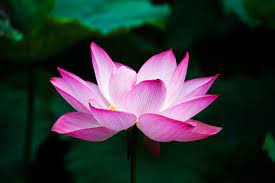
マインドフルネスは、あなたの苦しみをどう変えるか?――バイリンガルで、どうぞ。
How does mindfulness transform your suffering?――more to come both in English and
in Japanese.
The more often we’re able to practice coming home to ourselves, and the more time
we spend in mindfulness, the more we are going to become aware of our own suffering.
Even though mindful breathing and quiet do put us in touch with joy, they are also
likely to bring us in contact with pain (especially at first) as we become more conscious
of suffering we have been hiding from.
自分自身というわが家に戻る練修をしてマインドフルネスの時間を増やすほど、もっと
多くの苦しみに気づくようになります。マインドフルネスの呼吸と静まりのおかげで、
喜びのタネに触れることができても、(初心者の場合は特に) 心の底に潜む痛みにも触れ
始めるからです。今まで避けていた苦しみが意識にのぼるのです。
We have a natural tendency to want to run away from suffering. But without any
suffering, we can’t fully develop as human beings. When we approach suffering
in that way, we actually end up suffering much less, and the suffering can transform
itself more easily. If instead we continue to try to run away from suffering, to push it
into the furthermost corners of our mind, we only perpetuate it.
苦しみから逃げたくなるのは自然なことですが、もし苦しみが一切なかったら、十全な
人間的成長は望めません。苦しみをこのように捉え直したら、苦しみはだんだんと
減っていき、苦しみ自身ももっと簡単に変容していくようになります。逆に、苦しみ
から顔をそむけて、心の隅っこに押し込んでしまったら、苦しみは長く尾をひくばかり
です。
If we never suffer, there is no basis or
impetus for developing understanding and compassion.
Suffering is very important.
We have to learn to recognize and even embrace suffering,
as our awareness of it helps us grow.
苦しまなければ
理解と慈悲を育てる 基盤も原動力もない
苦しみこそが大事
学ばなければなりません
気づきの力が高まるとともに
苦しみを認め 抱きしめることを
Quite often we avoid silence, thinking that we will thereby avoid suffering; but
in truth, taking quiet time to come home to ourselves with awareness is the only
thing that will help heal our suffering.
沈黙を避けたいのがひとの常です。沈黙を避けることで、苦しみも避けられると
思うからです。しかし実際には、気づきをもって自分自身というわが家に戻る
ためには、静かな沈黙の時間をもつことこそ、苦しみ癒す唯一の道なのです。
Much of my teaching is aimed at helping people learn how to recognize suffering,
embrace it, and transform it. That is an art. We have to be able to smile to
our suffering with peace, just as we smile to the mud because we know that it’s only
when we have mud (and know how to make good use of the mud) that we can grow
lotus flowers.
苦しみを認め、抱きしめ、変容する――この方法を伝えることが私が目指すことです。
これはひとつの技術 (アート) です。平和な心で苦しみに微笑みかけられるように
なりたいのです。泥に微笑みかけるのは、泥があって (そして泥のうまい利用法を
知っていて) はじめてハス の花が咲くからです。
There can be big sources of suffering, major emotional hurts that stay with us
long past the original wound. But there are also what in French we call
les petites misères, the little sufferings that can wear us down day after day.
If we know how to handle these little miseries, we don’t have to become
a victim of the so-called daily grind. When suffering has become a block――
whether from major hurts or les petites misères――we should know how to
recognize it and embrace it.
苦しみの根 (原因) は深いのです。もとの傷がとうの昔に癒えても、心の痛みとして
しぶとく残るものだからです。これに対して、フランス語で「小さな不幸
(レ・ブティット・ミゼレ) と呼ぶもの、日々私たちの心をすり減らす小さな苦しみも
あります。このような小さな不幸の扱い方を知っていたら、単調な日常生活の犠牲に
ならなくて済むでしょう。大きな痛手、小さな不幸のいずれにせよ、苦しみが心の
しこりとなってしまったら、これを認め抱きしめる手当が必要です。
The suffering we feel may have transmitted to us by our father, our mother, our
ancestors. When we are able to recognize, embrace, and transform it, we do that
not only for ourselves, but also for our father, our mother, and our ancestors.
その苦しみは、両親や先祖から伝えられたものかもしれません。その苦しみを認め、
抱きしめ、変容することができたら、自分のためだけでなく、両親や先祖にも
そうしてあげることができるのです。
My second anthology is published now.
Please order it from Amazon if you are interested in.
私の2番目の詩集が、現在、出版されています。
興味のある方は、アマゾンでご購入をお願いいたします。
■プライバシー・ポリシー
当ブログは、Amazon.co.jpを宣伝しリンクすることによってサイトが紹介料を獲得
できる手段を提供することを目的に設定されたアフィリエイト宣伝プログラムである、
Amazonアソシエイト・プログラムの参加者です。このプログラムにおいて、
第三者がコンテンツおよび宣伝を提供し、ユーザーからの情報を収集し、訪問者の
ブラウザーにクッキーを設定することがあります。プログラムにおいて情報の
扱いについてはAmazon.co.jpプライバシー規約をご確認ください。
Amazon.co.jp ヘルプ: Amazon.co.jp プライバシー規約



